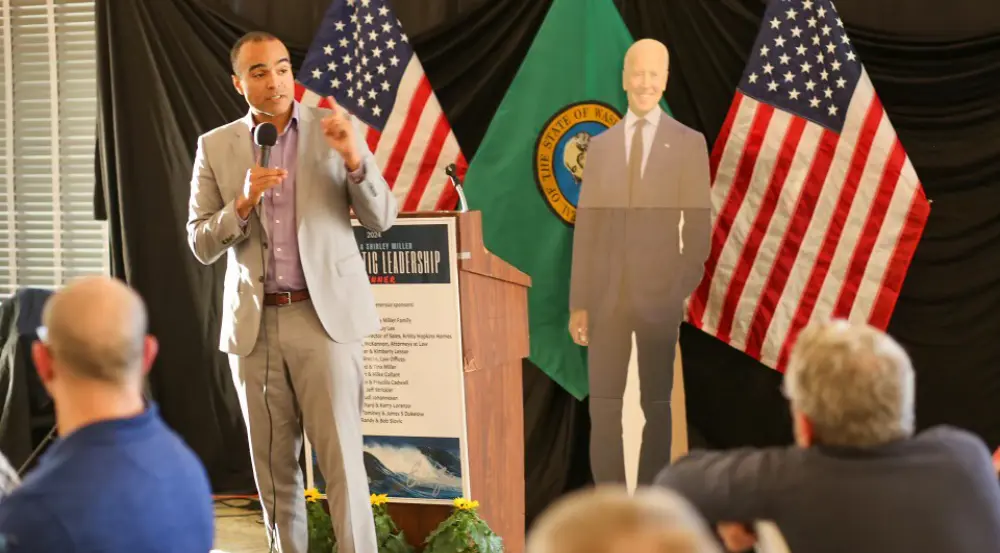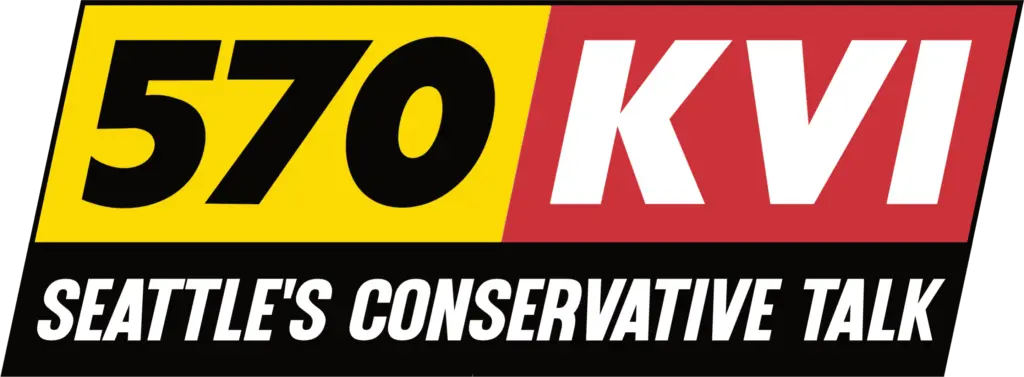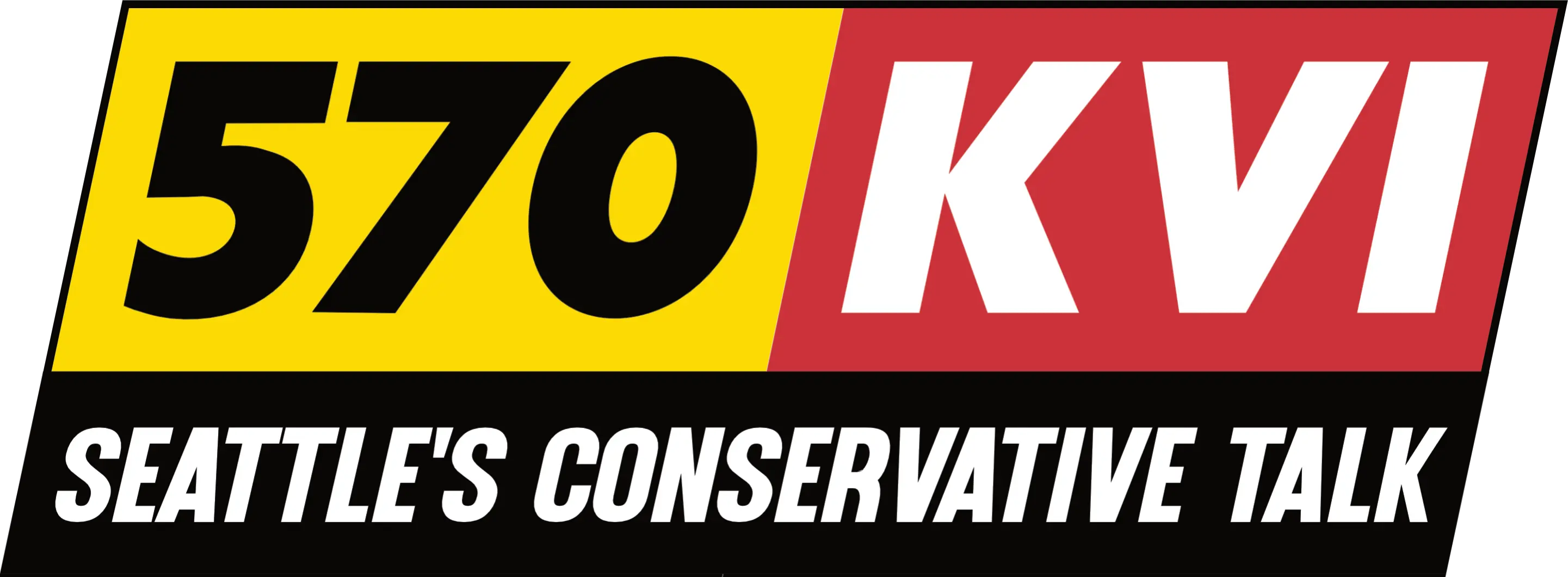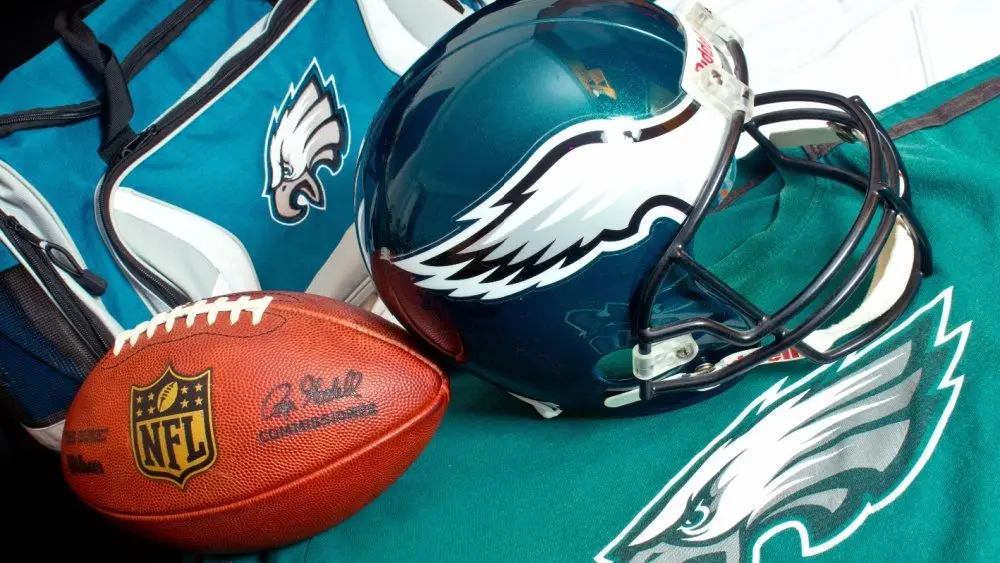
Emails obtained by The Center Square reveal close coordination between the Washington State Attorney General’s Office (AGO) and Seattle-based law firm Perkins Coie in preparing a federal lawsuit against President Donald Trump’s administration, raising concerns among legal observers and former political candidates about ethical boundaries in public-private legal partnerships.
The lawsuit, filed in March by Perkins Coie, challenges Trump’s executive orders canceling the firm’s federal contracts and revoking its security clearance. The day after the filing, the Washington AGO submitted an amicus brief—also known as a “friend of the court” brief—in support of the firm. The brief, authored by the AGO and joined by 20 other state attorneys general, did not disclose that Perkins Coie holds 10 active state contracts with Washington’s AGO.
“This wasn’t just an amicus brief. The AGO was essentially acting like Perkins Coie’s co-counsel—while maintaining contracts with them and claiming to be an independent third party to the case.”@TCSWashington's @TJMartinell1 reveals ethics issues from @AGOWA's coordination with… pic.twitter.com/BTFqhDfn51
— Ari Hoffman 🎗 (@thehoffather) June 9, 2025
Internal emails show that the AGO not only consulted Perkins Coie on the timing and content of the lawsuit but also sought detailed input on how best to craft the amicus brief. Solicitor General Noah Purcell emailed Perkins Coie on March 9, requesting guidance on how the AGO could be “helpful,” including questions about what claims the firm planned to make, what issues should be highlighted in the brief, and requests for drafts of the complaint and emergency relief documents.
“I’ve always considered it a badge of honor to be a Perkins alum, and even more so now,” Purcell wrote in one email.
On the same day, a Perkins Coie attorney informed Purcell that he had spoken with Washington Attorney General Nick Brown and that another firm lawyer would coordinate directly with the AGO on the amicus effort. By March 11, Deputy Solicitor General Emma Grunberg was exchanging draft filings with the firm and discussing legal strategy, including how to navigate the odds of securing a temporary restraining order.
The subject line of these emails often included “work product, common interest privileged”—a label initially used by the AGO to block public release of the messages. Only after legal pressure and a threat of litigation were the records disclosed in full.
Just days later, on March 12, a Perkins Coie attorney sent an approving email to both Purcell and Brown: “Great brief!”
In his interview on The Ari Hoffman Show on Talk Radio 570 KVI, investigative journalist TJ Martinell, who broke the story, said the findings suggest “possibly one of the biggest political scandals in modern history, especially in Washington state.”
“This wasn’t just an amicus brief,” Martinell said. “The AGO was essentially acting like Perkins Coie’s co-counsel—while maintaining contracts with them and claiming to be an independent third party to the case.”
Martinell pointed to an email in which Grunberg suggested waiting on a hearing to increase the chance of winning, using a legal precedent from another case as rationale. “That’s not third-party behavior. That’s legal strategy advice,” he said.
Martinell emphasized that this kind of advisory role is reserved for attorneys representing a client, yet the AGO claimed to be a neutral party offering a court opinion.
A federal judge sided with Perkins Coie on May 2. The Department of Justice has not filed an appeal.
The close collaboration has drawn sharp criticism from Pete Serrano, general counsel for the Silent Majority Foundation. “This is beyond concerning,” Serrano told The Center Square. “It begs the question of where the ethical lines should be drawn… They’re giving advice to the people they’re contracting with.”
Serrano also accused the AGO of inconsistent treatment, noting that when firearm dealers and groups like his foundation seek legal guidance, they are routinely turned away. “Why does Perkins Coie get preferential treatment?” he asked. “It’s all done on the back of the taxpayer.”
An ethics complaint against the AGO was filed following The Center Square’s reporting on its undisclosed contracts with Perkins Coie. However, it was swiftly dismissed by Washington State Ethics Board Executive Director Kate Reynolds—who reports directly to Purcell.
Deputy Communications Director Mike Faulk defended the AGO’s actions, saying the office’s conduct was standard and above board.
“We’ve already told you that we were in touch with Perkins and that there was nothing unusual or inappropriate about it,” Faulk wrote in response to questions.
In a previous exchange with The Center Square, Faulk justified the AGO’s pre-filing communications with Perkins Coie, calling it routine practice when filing amicus briefs: “There is absolutely nothing wrong with that or out of the ordinary about it.”
When asked why the emails were eventually released despite being labeled as privileged, Faulk said the public records process involves legal review and that “labels are tools to flag potentially non-disclosable materials. That doesn’t mean they don’t end up being disclosed after further review.”
He also rejected the suggestion of ethical wrongdoing outright: “The premise that there was something ethically questionable about this is an absurd fiction. It’s about as meritorious as the claim that the Earth is flat.”
Listen to The Ari Hoffman Show weekdays 3-6 PM Pacific on Talk Radio 570 KVI, KVI.com and the KVI App






